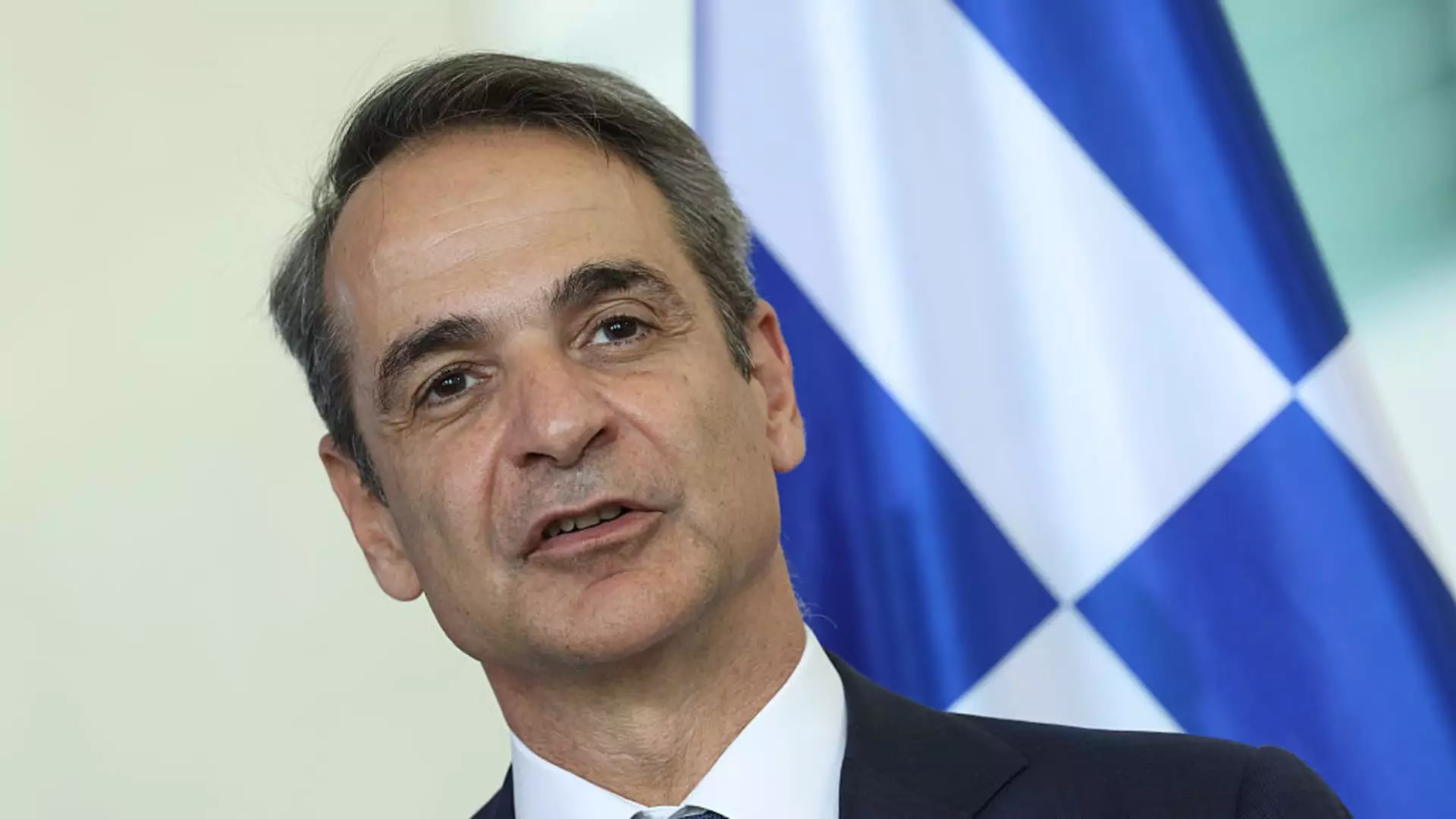In a world where military might often translates to geopolitical clout, U.S. President Donald Trump’s demands for NATO to increase defense spending to 5% of GDP seem nothing short of exorbitant. This request has increasingly raised eyebrows among European leaders, including Greece’s Prime Minister Kyriakos Mitsotakis, who views this ambitious target as impractical, if not outright reckless. The financial burden of such a demand could resonate throughout the entire European economic structure, putting further strain on nations already grappling with fiscal challenges. Mitsotakis aptly articulates what many European leaders are likely whispering in closed-door meetings: “5% is very, very difficult.”
The jarring significance of such a proposal evokes a sense of trepidation among nations already struggling to meet the NATO-governed baseline of 2%. Considering the precarious economic climates many member countries face, suggesting they jack their spending up to 5% feels more like a fantasy than a feasible strategy. Notably, the only exception bandied about is the staunch commitment from Poland, which has pledged to elevate its military expenditures to this level. However, asking all alliance members to do the same without substantial financial relief or strategic rationale seems disconnected from reality.
Shifting Focus: The Cost of Defense vs. Broader Security
Amidst this swirling debate, the discourse is evolving. Mitsotakis has remarked that while the 5% threshold is daunting, a long-term aim could be plausible if other forms of security expenditure—including critical infrastructure—are factored in. This perspective underscores the need for a more holistic view of national security spending. Instead of focusing purely on military budgets, one might argue that investment in infrastructural resilience is equally vital. Cyberspace security, energy independence, and health security have risen to prominence in modern warfare, demanding a renaissance in how we conceive of defense spending.
Furthermore, it is telling that NATO Chief Mark Rutte has suggested a middle ground of 3.5% dedicated to direct military spending while earmarking an additional 1.5% for broader security measures. While some might view this compromise as a step in the right direction, it still holds the risk of overspill costs, whereby nations pinch their budgets to meet arbitrary metrics set by external powers. Perhaps it is a time to rethink our approach, prioritizing the efficacy of defense systems over arbitrary proportionality to GDP.
Historical Context: The Weight of NATO Spending
Historically speaking, it’s astonishing to see how countries like Greece have continually exceeded the NATO spending benchmark—devoting nearly 3.1% of their GDP to defense due to ongoing tensions with Turkey. Many may question whether such military expenditures are sustainable or warrantable, especially amidst pressing domestic needs. The longstanding fiscal constraints imposed by the European Union exacerbate these dilemmas. Nations need to balance defense readiness with social investment—an equation that often leads to contentious political debates among the populace.
Additionally, Mitsotakis himself has raised concerns about the rigidity of European Union fiscal rules that have historically restricted national budgetary decisions. It is ironic that while wars are spilling into new domains of technology and strategy, the financial discourse remains chained to old paradigms defined purely by traditional military capability. The recent announcements from the European Commission toward relaxing certain fiscal constraints paint a hopeful picture, yet one must remain vigilant. Change can often slow, if not altogether stall, in bureaucracies.
The Path Forward: A Call for Pragmatism
The next NATO summit holds enormous potential for shaping the future trajectory of military spending and security collaboration among member nations. As political and economic landscapes continue to morph under the weight of international scrutiny, there is a pressing need to evolve our understanding of what constitutes fair contributions to global security. The reflection from leaders like Mitsotakis serves as an important reminder: dismissing our economic realities in pursuit of unrealistic metrics ultimately undermines the very essence of collective security. Strategies must be steeped in pragmatism, aimed not at enshrining arbitrary percentages, but at maximizing the efficacy of investment toward true safety and security.

Leave a Reply